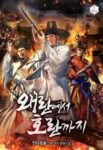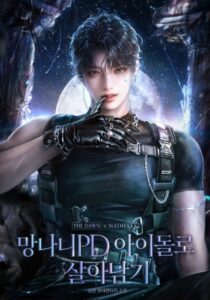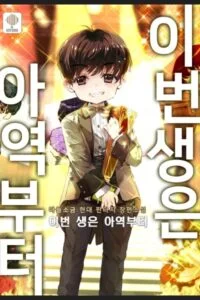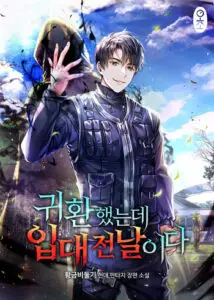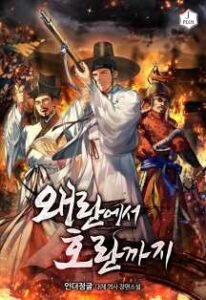This chapter is generously sponsored by Trughart.
Making a plan.
Generally, in alternate history novels, authors choose a protagonist with a background in history to cater to their convenience.
I was planning to do the same.
It’s easier to convince readers that the protagonist knows about the Joseon era with this kind of setup.
However, there’s a hole in this setting.
In reality, just because someone is a history major doesn’t mean they know everything about Joseon history like the back of their hand.
To professors, even the smartest college student would seem like a chimpanzee, and a graduate student would still be a chimpanzee that can use tools at best.
Moreover, even professors who specialize in Joseon history have differing opinions and debate about whether the turtle ships had two or three floors – that’s the reality.
In fact, such settings are made by authors to add credibility to the protagonist’s actions for the readers.
In other words, actions must have a basis; only barbarian warrior-type characters can act without needing any justification.
Especially in low-power alternate history novels without a system, the protagonist’s knowledge is crucial.
Fortunately, I studied the Joseon era like a cram session before writing.
The biggest success formula for an alternate history novel depends on how logically the author can insert “ifs” into history and move the story.
And I pondered and pondered about how the protagonist should act.
The scenario I came up with is divided into three phases.
One of them is the Imjin War.
Before the Imjin War, the protagonist must strengthen Joseon.
This is the scenario I envisioned for the introductory part of the novel.
Within this scenario, I have also roughly planned some detailed plots.
First of all, Joseon is essentially a country that pursues a small government.
This means they have a poor financial situation because they don’t impose heavy taxes on the people.
But apparently, most of Joseon’s people are poor.
Isn’t it interesting? The country collects low taxes in consideration of the people, yet people still starve?
This doesn’t make sense logically.
Then why are the people poor?
Healthy countries usually have a strong middle class.
However, Joseon has imposed excessive taxes on this middle class.
The middle-class merchants, among the commoners, excluding the lower-class peasants, bear the burden of taxes, public contributions, and labor services.
Because of this structural issue, both the country and its people become poor as only a portion of the population bears the heavy tax burden.
The poor people can’t have any more hope, and hopeless humans stagnate and decline.
Well, if a king like some divine ruler enters the country, people would enjoy an unrealistic utopia, but sadly it’s the wretched era of Joseon now.
Of course, before running away, King Seonjo was a surprisingly decent monarch.
However, the problem was that he used his decent abilities more to maintain his own power than to care for his people.
Reforming this kind of Joseon is the path I must walk before the Imjin War.
“The problem is, how should the nation’s variables move to prepare for the upcoming disasters…?”
If I were an omnipotent author sitting in front of a computer typing away and unfolding a story according to my script, the protagonist might reform Joseon within 10 years.
But now, I have to reform the Joseon of reality with my bare hands.
This is also the reason why I didn’t choose the king as the protagonist.
A king? In the Middle Ages, Korean kings surprisingly had little power.
The people who had to watch out for the regional lords’ opinions were the kings of the medieval times.
Joseon was no different.
In the Joseon era, unless you were one of the rare cases like the founding king, the crown prince, or the tech-savvy King Sukjong, any king could be replaced by their ministers at any time.
In that sense, King Seonjo was an exceptional monarch.
Of course, it’s terrifying to think about the lack of responsibility a king would show in times of crisis.
King Seonjo was the first in the Joseon Dynasty to abandon his people and run away as a king of royal blood, but he maintained his throne until his death.
Amazingly, this is true.
He was even responsible for the Gichuk Oksa[1], one of the bloodiest events in the Joseon era.
King Seonjo’s monstrous political power was aided by the faction politics in play.
Even the politically maxed-out King Seonjo tried reform the tax laws, but it wasn’t implemented until King Hyeonjong’s reign[2].
Could a person like me, who learned politics through League of Legends, create a protagonist with political skills surpassing those of King Seonjo?
That’s absurd.
Readers aren’t fools.
If I forced such a protagonist into existence, I might be met with a barrage of comments saying, “I’m dropping this story.”
No character in a novel can surpass the abilities of the writer.
In other words, the intelligence of the characters in a novel cannot surpass mine, but isn’t this place reality?
Naturally, there will be experienced and exceptional monsters lurking around here.
On top of that, the king has no private life.
Now, even though I don’t have much of a personal life, it’s still more comfortable than being a king.
In fact, if the politically weakened ancestors had tried to reform the country, the probability of facing a coup would have increased by 200%.
For example, if I were to possess the ancestors and implement policies to raise taxes and train soldiers to prepare for war, then there would be a coup in every province, accusing the king of being mad.
Moreover, this era already has a precedent: King Yeonsangun[3].
So, if the nobles who once staged a coup and turned over the regime disliked the new government, they wouldn’t hesitate to do it again.
As evidence, even the war hero, King Gwanghaegun[4], had to step down from power because of King Injo’s coup[3].
In other words, unless I have king-like abilities, it’s difficult to succeed in reforming as a king.
Thinking about it again, it seems that I chose my protagonist position well.
“There’s just not enough time…”
Perhaps I hastily assumed that it would take about 10 years to reform Joseon.
While it’s true that landscapes change in 10 years, I don’t know if that’s enough to protect my family from the Imjin War.
In other words, this novel was a time attack with a bomb necklace attached from the beginning.
It’s like a writer being forced to serialize by readers! At least I could eat some mandu!
In reality, I’m responsible for the daunting task of completely reforming the country of Joseon within 10 years.
The easiest reform would be to become an enlightened monarch and lead reform from the top down.
However, not all reforms are top-down.
One of the most representative national reforms is the French Revolution.
But I have no intention of sharing radical ideas like abolishing the caste system with the common people, even in my wildest dreams.
Since I am a noble, if I expose radical ideas like abolishing the caste system, it’s clear that the ruling class in every province would attack me.
“Anyway, there’s nothing I can do about the Imjin War. The realistic way is to reform Joseon as much as possible and then prevent the invasion of the Ming and Qing Dynasties. If I’m being careless, I might even get executed by Seonjo. Joseon is really hell!”
The first step of the “Joseon Hell Salvation Project” is food and living.
The industrial base of the Joseon era is primarily focused on agriculture.
This is evidenced by the fact that before the introduction of currency called yeopjeon[5] in Joseon, grains and textiles were used as actual currency.
The amount of grain an adult man needs to eat in a year is one seom.
One seom weighs 140kg, which means eating over 300 grams of grain a day.
If you cook it into rice? It’s truly tremendous.
Indeed, the size of the rice bowls I’ve seen while living in the Joseon era was incredibly shocking.
Even I, who have studied the amount of food consumed by Joseon people, was initially surprised.
Nowadays, Joseon people eat about 4 to 5 bowls of rice per meal.
The reason for eating so much rice is because of the imbalance of nutrients.
To supplement all three essential nutrients (carbohydrates, fats, and proteins) from rice alone, the amount of rice consumed at once increases.
In other words, the first step to making Joseon a strong and prosperous country is to supply protein and fat to all eight provinces of Joseon.
If protein and fat can be supplied to the tables of the eight provinces of Joseon, then the consumption of grains will naturally decrease. What happens when surplus grains are produced?
Commerce is bound to develop.
At least I need the proper development of commerce to save this country.
By promoting commerce, I need to obtain guns and gunpowder to fight the invaders coming in about nine years and 300 days.
Fortunately, if I have these, I might be able to shatter the invaders with the “item” I’ve thought of for the novel.
As my thoughts grew longer, my “Joseon Hell Salvation Project” was roughly like this:
The protagonist is reincarnated in the Joseon era, solves Joseon’s food shortage, develops Joseon’s commerce, stockpiles military supplies because of the developed commerce, trains elite troops without being charged with treason, and makes a successful debut in the Imjin War. That’s the first part of my Imjin War scenario.
It would be perfect if it weren’t for the protagonist being me.
Fuck, if I knew I would suddenly fall into the Joseon era, I would have sorted out the scenario first!
Who would expect to fall into the world they were planning and write a novel about it?
“I need to sort out my thoughts anyway.”
I wrote down my thoughts in a notebook.
- The protagonist is reincarnated into a noble family.
I hastily reincarnated, but I don’t know why I did.
…If I write this situation into a novel, the readers would comment “Ah, reincarnation truck victim, pathetic,” but if I actually got hit by a reincarnation truck, they’ll comment instead, “Isn’t that too obvious? Goodbye!”
From this, I can see that the readers prefer stimulation over well-written content, making them masochists.
Just thinking about it makes me want to drink some energy drink.
For now, I have to mark “The protagonist is reincarnated into a noble family” as being cleared, right?
The problem is the next step.
- Resolving the food shortage in Joseon.
The problem starts here.
From this point, the difficulty level exponentially increases like a blazing inferno.
Fortunately, the early part of the novel I was planning to write involves various research on how to solve the food shortage.
The success of a novel depends on how plausibly it is written.
So, I focused on this early part of the novel and conducted thorough research.
“I applaud my-diligent-past-self-who-worked-on-this-unnecessarily-detailed-research-for-a-novel!”
In the story I had planned, the protagonist was from a noble family, but there was no specific setting on where the protagonist would take action.
However, I had considered the pros and cons of various starting points and thought about which scenarios would be interesting depending on the starting point.
- A noble family of the Jeolla Province
- A noble family of the South Hamgyeong Province
The advantage of the first option is that it provides a stable starting point.
Even during the Imjin War, Jeolla Province did not suffer much damage.
This is because the greatest military leader in the history of the Korean Peninsula, General Yi Sun-sin, served as the Jeolla Left Naval Commander, ensuring relative safety for the region.
The advantage of the second option is more novelistic, which is the possibility of having a romantic relationship with General Yi Sun-sin before the Imjin War.
Additionally, there is the advantage of possibly getting back at Won Gyun, who could be considered the “final boss” of the Joseon Navy.
However, the best option out of these choices is
- A noble family of the Gyeongsang Province
In fact, the Jeolla option can be considered too safe.
Jeolla Province was the largest granary in the Korean Peninsula and even the Japanese invaders during the Imjin War planned to use it as a supply base.
For the protagonist to carry the story in such a region, they would have to pull off a scam as incredible as any system.
For example, introducing genetically modified modern rice strains or crops like potatoes or sweet potatoes.
Of course, if these overpowered elements are utilized at the starting point, it may be easier to unfold the novel.
But such a fragmented progression may easily lose the readers’ interest.
South Hamgyeong Province might be interesting for a novel, but in the long run, it is a quite risky choice.
To put it bluntly, General Yi Sun-sin is an overpowered character who could easily defeat the Japanese invaders even without the protagonist.
The only advantage in novelistic terms would be the possibility of sparking interest among some readers by having an encounter with General Yi Sun-shin.
After all, even in the actual history, General Yi Sun-sin is a figure who could drown the most powerful opponents in a sea of defeat.
Having such a character meet the protagonist early in the story may result in more disadvantages than advantages in terms of plot.
First of all, because he is such a great figure, the protagonist’s character will relatively weaken.
If the author makes the protagonist a sidekick to General Yi Sun-sin to save their character, I guarantee that not only the most powerful readers but also the good-natured ones will criticize the novel, which will ultimately fail.
At best, the story can include the overpowered element of wreaking havoc on Won Gyun, but that’s it!
South Hamgyeong Province itself is an undeveloped and barren land.
In other words, it can be considered a region with low potential for development.
The only thing the protagonist could do there is to engage in smuggling between Joseon and Qing China.
On the other hand, Gyeongsang Province has a much higher potential for the novel.
First of all, it is the region that suffered the most damage during the Imjin War, which can be considered the first main theme of the novel.
This can be used as a factor to make the protagonist grit their teeth and struggle.
“Like me right now! Fuck!”
Secondly, since the Silla Dynasty, Gyeongsang Province has been geographically advantageous enough to be used as a center for trade.
Of course, to take advantage of this benefit, the previous “2. Resolving the food shortage in Joseon” has to be resolved.
And, crucially, it is a land where the protagonist can freely act.
So, I tentatively planned to set the protagonist as the child of a Gyeongsang Province noble family.
Wait, did I end up in Ulsan because I set my mind on making the protagonist part of a Gyeongsang Province noble family?
“Ah, no way… Did the me in the past, that bastard, snatch away all the honey pots that the current me could suck from?”
The more I thought about it, the more rancid that past me seemed!
I hereby appoint you as a villain, no less than a cider pass.
Wait, isn’t that like spitting saliva while lying down?!
Anyway, I had a separate reason for tentatively setting the protagonist in Gyeongsang Province.
While researching, I completed an investigation about the environment of Joseon during the Imjin War and maybe even created a very persuasive theory.
From the time the Imjin War broke out, the Earth entered a cooling period.
This means that cold-water fish species were caught near the East Sea of Joseon, including anchovies, a very nutritious fish.
The problem is the preservation method for anchovies. In Korea, there is a method of preserving them by making them into semi-dried fish called gwamegi.
There is also a method of completely drying them to preserve the anchovies.
It is made through smoking to create dried fish.
This can be implemented through trial and error.
If this hypothesis is correct, I can write the novel without the need for genetically modified rice or smuggling between Joseon and the Manchus.
According to my research, this anchovy is a fish with no waste.
The damn neighboring countries even made a fertilizer called geumbi with these anchovies.
I focused on this geumbi.
Most of Joseon’s land was of poor quality.
Although rice does not consume a lot of nutrients, our ancestors had to farm for hundreds or thousands of years, so the nutrients were bound to be low.
If you think about the fact that there was a significant increase in rice production when chemical fertilizers were supplied, you might be able to solve the second quest if you make fertilizer.
Of course, a tremendous amount of anchovies are needed to make enough fertilizer for farming.
Fortunately, the method of making geumbi is stored in my head, so I will use it to solve the nutrient problem of Joseon.
In fact, geumbi is not something like a secret recipe passed down from generation to generation.
In Japan, geumbi was used as a high-grade fertilizer to produce citrus and cotton.
In other words, the production cost was low.
However, I plan to use the invincible cheat key of modern people here.
Unfortunately, the first cheat key system was blocked, but I also have the incredible cheat key that traditional alternate history novel protagonists have.
That is the knowledge of the present.
I don’t think the knowledge of the present is necessarily ahead of the knowledge of this era.
For example, would democracy be ahead of this era’s political structure? No, there’s no way that a man like King Seonjo would allow for a democracy.
However, humanity has succeeded in creating a solid economic logic through the inheritance of numerous pieces of knowledge.
It is the economy of quantity. As more goods are produced, the unit cost is bound to decrease.
In other words, what if you catch a lot of anchovies, the main ingredient for geumbi? Naturally, the production cost for the fertilizer will drop, and this can be used to improve the food problem of Joseon.
But will it work out as I envisioned?
Fuck, dear reader, 10 years is too short! Let’s make it 40 years. Please!
Then, won’t my descendants take care of stopping those Manchu bastards? Fuck!
[1] A purge that happened in 1589.
[2] Reign: 1659-74.
[3] Reign: 1494-1506.
[4] Reign: 1608-23.
[5] A coin with a square cut out in the middle, allowing them to be strung together.
Enjoyed this additional chapter? Big thanks to our sponsor, Trughart, for making it possible! If you’d like to see more, consider sponsoring a chapter yourself!
Love the series? Share your thoughts on Novel Updates by rating and reviewing it now!

